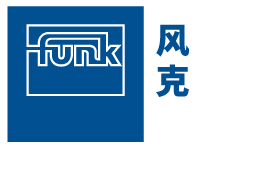An explosion at a chemical plant in Germany causes massive damage to property. But an even worse consequence is that production is shutdown – for years. Funk provided fast support in this claim scenario.
The German company Schill + Seilacher produces chemical substances such as silicone, release agents and additives, which are used in a number of industrial branches. The innovative products ensure the family-run company’s position as a global market leader in many fields. The company’s highest priority is the safe processing of the substances. But early in the evening on 1 December 2014, disaster struck at the Pirna site in Saxony, resulting in nationwide headlines: a reactor in a newly built production plant had exploded.
The sad result of the accident: one fatality, several seriously injured, high property damage. Several residential buildings in the vicinity of the plant were also damaged by the blast wave. It became clear at an early stage that the plant’s existence would be threatened by a business interruption. Lars Imbeck, account manager and major loss coordinator at Funk, says: “Such a serious accident requires immediate, prudent action, in this case both in coordination with the client and the insurer. We see our main task as a broker in immediately calling in the right experts and offering assistance in dealing with the authorities so that clarification of the cause of the accident can be expedited.’
Fast support on site
Right on the day after the accident, a team of experts consisting of loss adjusters, accident investigators, chemists, fire restoration specialists and several other experts met in Pirna. Lars Imbeck and Funk property insurance specialist Kai Winter accompanied the insurance claim from the first day until the final settlement. It quickly became apparent that this loss involved several insurance lines. In addition to property and business interruption insurance, this also included electronics insurance, business liability insurance and environmental liability insurance. Accident insurance had to provide coverage for the unfortunate death and disability cases. Because of the official investigations, criminal legal protection insurance provided the necessary coverage. Immediate action was taken to secure the plant site and equipment that remained undamaged.
According to initial estimates, the total loss was initially put at 100 million euros. Funk managed to get the insurer to approve an immediate payment of 6.5 million euros to finance initial measures on the very first day of the claims meeting. It very quickly became apparent that the business interruption loss would significantly outweigh the property damage itself.
Proactive damage control by Funk
The time required for technical reconstruction alone was estimated to be at least 18 months. Already in the first weeks after the damage, the situation was aggravated by the fact that the responsible authorities imposed a temporary shutdown on the entire site, including the production lines and equipment that had been spared from the accident. Authorities requested investigations whether this equipment would pose any risk. This caused a shut down of the entire Pirna plant. Since the Pirna site served as an ‘extended workbench’ for the company’s other locations, these other sites were also affected by the interruption. What was not foreseeable at that time was that the shutdown of the plant would take a very long time. Only after a year and a half and dozens of expert opinions was the shutdown lifted – and only for part of the plant. Helge Jetschiny, Head of Finance/Controlling at Schill + Seilacher, comments: “The shutdown imposed by the authorities almost meant that we would have had to close the site completely. The immediate loss of around 120 jobs in Pirna was imminent. Funk’s excellent advice and proactive claims management has helped us to finally be sure that operation will continue here.”
Advantage: long liability period
In the meantime, however, an alternative production facility had to be found at short notice. After all, customer demand was to continue to be met despite the damage. Contract manufacturers were sought and commissioned for this purpose. Schill + Seilacher was therefore able to continue supplying its customers. Lars Imbeck comments: “This case shows how important it is to work out sufficient indemnity periods in business interruption covers. While technical reconstruction could take place very quickly in most cases, regulatory requirements often lead to extensions of the business interruption that are difficult to predict.”
For Schill + Seilacher, the claims adjustment process was aided by the fact that they had chosen an indemnity period of 36 months for their insurance. More than three years after the accident, all Schill + Seilacher plants in Pirna that were not affected by the damage were allowed to resume production. The reconstruction of the plant affected by the damage, on the other hand, has still not been approved by the authorities. Even though it could no longer have any significance for the closed damage case, Schill + Seilacher has even initiated an extension of the detention period to 48 months by Funk for the future due to the current damage experience.







